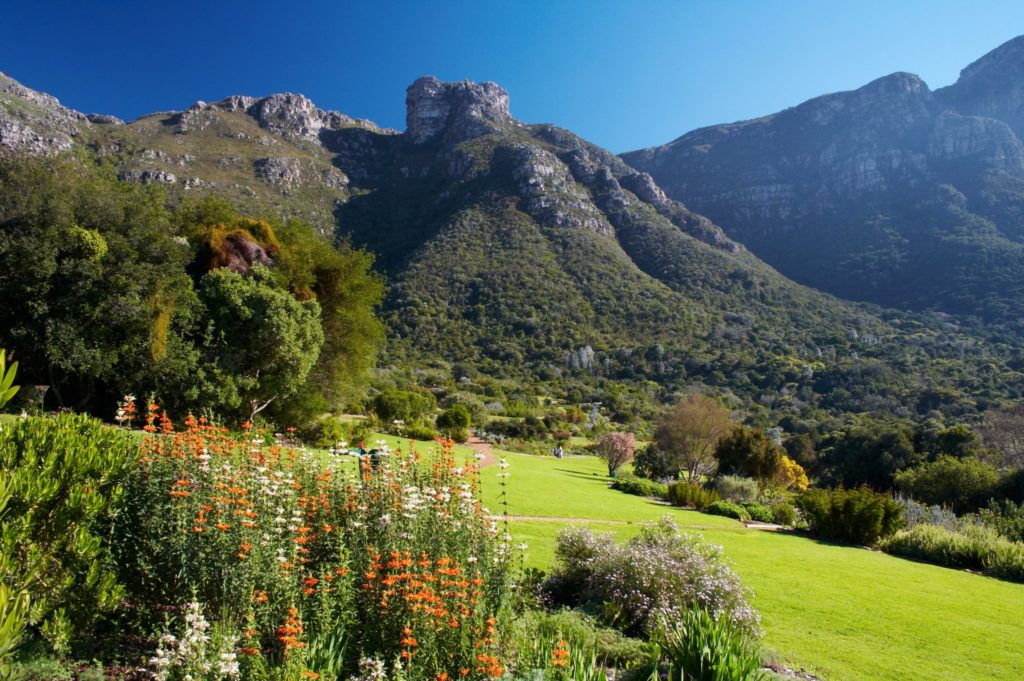One of Cape Town’s most loved picnic and outdoors destinations, Kirstenbosch National Botanical Garden has been awarded a level IV (4) accreditation by The ArbNet Arboretum Accreditation Program and The Morton Arboretum.
The ArbNet Accreditation Program is the only global initiative to officially recognise arboreta based on a set of professional standards. Level IV is the highest level and Kirstenbosch is currently one of 30 gardens accredited at level IV out of 2037 worldwide.
Mpendulo Gabayi, Kirstenbosch horticulturist and tree expert responsible for the arboretum, took on the ArbNet application project in 2019.
“During the Global Partnership for Plant Conservation (GPPC) conference held at Kirstenbosch in August 2018, I met with the president and CEO of the Morten Arboretum/ArbNet from the USA, Dr Gerard Donnelly. He was fascinated with the standard and beauty of our garden, after a long conversation with him about our tree collection and conservation, he then recommended that Kirstenbosch apply for accreditation on ArbNet. In 2019 we started the application process, which took months of preparation to compile all the information,” says Gabayi.
The application process involved the submission of specific garden information and evidence in relation to tree conservation, education, curation of tree collection, research and collaboration. The required information and evidence included among other things:
– Arboretum Plan
– Arboretum Collection of 500+ species, varieties or cultivars of trees or woody plants.
– Arboretum Collections Policy
– Enhanced Educational and Public Programming
– Collaboration with other Arboreta or relevant Organizations
– Tree Science, Planting, and Conservation
– Scientific or Conservation Staff and Capability for Collaboration
The application to ArbNet involved providing information around collections of value and interest, collections that are of conservation concern and have historic interest and whether such information is shared with the BGCI’s PlantSearch Database. Furthermore, Kirstenbosch needed to demonstrate their capacity, professionalism and commitment to effectively curate these important tree collections in order to maintain all levels of interest in trees.
Unique species housed at Kirstenbosch include the threatened Prunus africana, Ocotea bullata, Widdringtonia wallichii, Widdringtonia schwartzii, Warburgia salutaris, as well as Kirstenbosch historic trees such as the 360 years old Brabejum stellatifolium in the arboretum the Camphor trees in the avenue dating back to 1898 and ancient gymnosperms species of Podocarpus and Afrocarpus a
Werner Voigt, Curator of Kirstenbosch, emphasised that Kirstenbosch’s tree collection consists of more than 700 taxa indigenous to southern Africa, which are found in various regions across the country from the winter, summer, and all-year rainfall areas.
“The Kirstenbosch woody species collections can be grouped according to their conservation classification (threat status), species of economic value, ecological keystone species, species of ornamental value, and cultural or spiritual value the latter of which would include their important medicinal use. The cultivation and curation of these special tree collections contribute to the overall mandate of the South African National Biodiversity Institute’s which is ‘To explore, reveal, celebrate, and champion biodiversity for the benefit and enjoyment of all South Africans’. To this end, conservation projects that involve restoration and horticultural research play an integral part in the protection of trees and collaborating with partners on these projects is key as it allows for exchanging experiences, resources, knowledge and diverse expertise,” says Voigt.
ArbNet grading criteria includes having a dedicated curator who is focused on the care and development of the arboretum collection to ultimately meet the set goals in accordance with the arboretum plan and collections policy. Voigt, Kirstenbosch Curator, concludes that having an ArbNet accreditation and membership gives Kirstenbosch access to a global network of tree-focused professionals and facilitates the collaboration of knowledge-sharing.
“We are thrilled and grateful to have been recognised as one of the botanical gardens in the world for upholding high standards in the curations of our tree collection. We believe that this paves the way for more progressive conservation and collaborative work on South African woody collections at Kirstenbosch,” adds Voigt.
More information on the conservation efforts and unique species found at Kirstenbosch can be found here: www.sanbi.org/gardens/
Picture: Facebook

